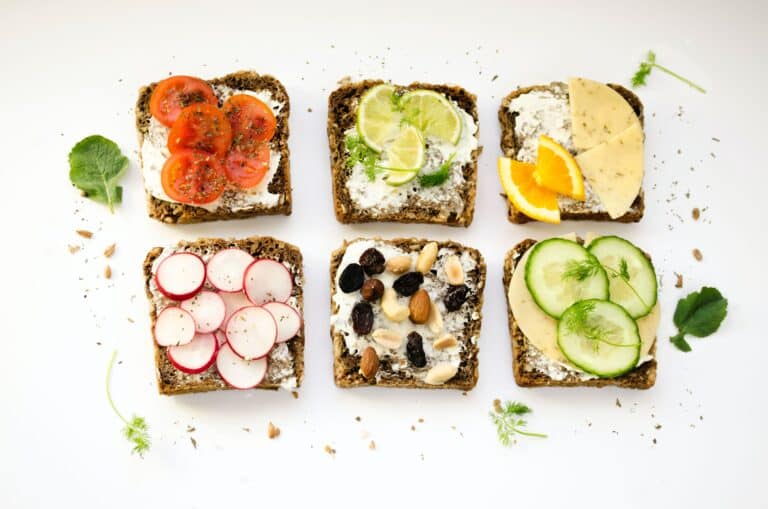If you want to go from scrawny to brawny, the plan sounds simple: Lift hard and heavy. Eat more. But, for some guys, like our client John, it’s more complicated.
John was a busy pre-med student tired of feeling skinny and slim. He wanted to add size. And he wanted to feel strong. The challenge is that John is what we call a “hardgainer.” Long and lean, with less than optimal genes for building muscle quickly.
But being a hardgainer isn’t a muscle-building curse. While genetics inevitably do make a difference, your genetics are not preventing you from adding on pounds of muscle. With our help, John layered on 20+ pounds in just over seven months. Throw the excuses out because that’s incredible progress.



How did John finally break through for more growth – and how can you achieve similar results? If you want to transform your body there are two muscle growth breakthroughs you need to know.
Muscle Growth Breakthrough #1: Focus on Progression
We kept John’s training simple. But don’t mistake simple for effective. If you want to build muscle, it comes down to getting stronger and progressively doing more work month after month.
And if muscle-building is the goal, then variety is your friend. This doesn’t mean altering up your workouts every day, but it does mean going through cycles where you rotate your reps and the movements you perform.
In John’s training plan, we alternated between strength-focused plans for one month, emphasizing lower reps and increasing weight each week. Then, the next month, we’d emphasize higher sets and reps, but with moderate weight (instead of max).
To help illustrate what these plans might look like, here is a simplified example of how you could set up each training month:
Month 1 – Lower Reps, Increasing Weight
Week 1:
- Exercise 1 – Squats: 4 sets x 6 reps (70% of your one-rep max)
- Exercise 2 – Bench Press: 4 sets x 6 reps (70% of your one-rep max)
- Exercise 3 – Deadlifts: 4 sets x 6 reps (70% of your one-rep max)
Week 2:
Increase the weight by 5-10 pounds (depending on your strength level) for each exercise compared to Week 1.
- Exercise 1 – Squats: 3-4 sets x 6 reps (75% of your one-rep max)
- Exercise 2 – Bench Press: 3-4 sets x 6 reps (75% of your one-rep max)
- Exercise 3 – Deadlifts: 3-4 sets x 6 reps (75% of your one-rep max)
Weeks 3 and 4 would continue this progression, eventually ending at 85% of your one-rep max.
Month 2 – Higher Sets and Reps, Moderate Weight
Week 1:
- Exercise 1 – Reverse Lunge: 4-5 sets x 10 reps (60% of your one-rep max)
- Exercise 2 – Dumbbell Incline Press: 4-5 sets x 10 reps (60% of your one-rep max)
- Exercise 3 – Prone Leg: 4-5 sets x 10 reps (60% of your one-rep max)
Week 2:
Increase the weight by 5-10 pounds for each exercise compared to Week 1.
- Exercise 1 – Reverse Lunge: 4-5 sets x 10 reps (65% of your one-rep max)
- Exercise 2 – Dumbbell Incline Press: 4-5 sets x 10 reps (65% of your one-rep max)
- Exercise 3 – Prone Leg Curl: 4-5 sets x 10 reps (65% of your one-rep max)
Weeks 3 and 4 would continue this progression, eventually ending at 75% of your one-rep max.
It’s a good reminder that multiple rep ranges can lead to growth, but it’s important to focus on a specific goal and make it easy to see progress. Dramatically changing your workouts each session might seem like a good idea, but not if it makes it hard to track progress and improve in the ways that allow you to pack on muscle.
Muscle Growth Breakthrough #2: Pushing the Calorie Threshold
Like most hardgainers, John’s biggest challenge was eating enough. If your goal is to build muscle, you need to eat more calories than you burn (plus consume adequate protein). These are the raw materials for new growth.
Sounds great, right? You get to eat more food!
But, this isn’t always easy or as fun as it sounds when you’re naturally very lean like John. “Hardgainers” like John often feel full before hitting their target calories for the day. Eating becomes a chore.
That’s why you need to change the rules of eating for muscle building. You might need to eat past your hunger to put on new muscle. (Note: this is very different when focusing on fat loss and body recomposition, which is shifting your body fat percentage.)
High-quality foods should form the base of any good diet, think your protein, produce, and fiber-rich carbs). Yet, we often suggest adding higher-calorie foods traditionally labeled as “unhealthy” for clients struggling to eat enough.
Finding ways to sneak in extra calories in ways that are fun and enjoyable can make eating less of a chore, and help pack on the necessary calories.
Little wins can be healthy-ish behaviors, like adding extra peanut butter to your smoothies or having a second serving of pasta. But, it can also mean hitting up Shake Shack and enjoying a milkshake.
We’re not encouraging a free for all, but these foods provide a ton of calories and take up less volume in the stomach (meaning you feel less full). And that gets the job done and presses the right buttons so your training turns into muscle. And, when done right, it means more muscle without much added fat.
Ready to create your own muscle growth breakthrough?
With Born Fitness Online Coaching, you’ll have not one, but two dedicated coaches – one for fitness and one for diet. Say goodbye to generic muscle-building workout plans and cookie-cutter meal plans that don’t work. We’ll help you create a customized plan that challenges you and helps you build muscle effectively. You can apply here if interested.

B.J. holds a B.S. in Health and Human Performance and multiple certifications, including Precision Nutrition Level 1 and BioForce Certified Conditioning Coach. Over his 14-year coaching career, he’s been fortunate enough to coach a wide range of clients. From online clients looking to get in great shape to CEO Nate Checketts (Rhone) and CEO Marcelo Claure (Softbank), and professional skateboarder Sean Malto. Before beginning his training career, he was a sports science lab research assistant.









Leave a Comment